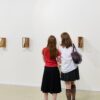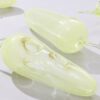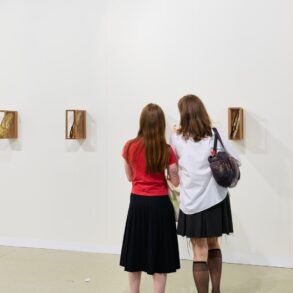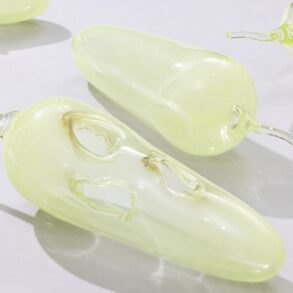SANTIAGO DE COMPOSTELA, Spain — “O home na praza e a muller na casa” (“The man in the square and the woman in the home”) is one of many misogynistic expressions that were common in Spain during the dictatorship of Francisco Franco. It comes from an era when women’s behavior, movement, and morals were strictly contained and controlled in the name of traditional values and patriotism, and reflects an insistence on the erasure of women from public space.
This saying and several similarly sexist ones appear in Mar Caldas’s “Guía postal de Lugo (1936–1976)” (2014/2024), a wall installation in which the words hover over black and white photos of women working in places such as pharmacies, markets, hospitals, and canneries.
This piece opens Mar Caldas: Mujeres, trabajo, y memoria (Mar Caldas: Women, Work, and Memory) at the Centro Galego de Arte Contemporánea. It is an apt introduction to the Galician artist and educator’s layered practice. Since the 1990s, Caldas has fused research, photography, video, and installation to recognize and vindicate untold stories of women’s lives and labor. Curator Monse Cea writes that Francoist refrains like the ones in this piece “continue to mock us to this day,” but by shining a spotlight on the indispensable role of women’s work inside and outside the home in larger society, Caldas shows that women have long defied their message.

The exhibition of recent work begins with Caldas’s photography series Facedoras de Bueu (Makers of Bueu) and Facedoras do Baixo Miño (Makers of the Lower Miño), both of which depict women workers around the southern Galicia region of Spain. Her portraits capture farmers, lace makers, seaweed collectors, caretakers, and others in the picturesque green countryside, old town quarters, and seaside villages that make the region such a popular tourist destination.
In fact, Galicia’s local economies and social welfare have been fueled for generations by women like these, whose labor has also historically been overlooked and under-compensated. In these large-scale, carefully constructed photos, the women pose triumphantly in compositions that mimic famous paintings by canonical European artists like Velázquez and Goya. In “Esfolladora de millo” (Corn Husker) (2018), an older woman stands at center of the frame clasping ears of corn to her chest, their husks flaring out from her body like wings. Her serious, steady gaze shows us that she refuses to be ignored, and that she is rightfully proud of her labor. Not quite documentary images, the pictures are still a thoughtful celebration of the vibrancy and dignity of these women.

The second half of this moving show is dedicated to Caldas’s project Retrato de familia (“Family Portrait”) (2023–24), commissioned by the museum. Here, the artist also draws on her own family’s traumatic history — her grandfather, a socialist union leader in Vigo, Spain, was executed by firing squad in 1937 — to explore personal and collective experiences of violence and memory.
This expansive auto-ethnography traces the long-term reverberations of her grandfather’s assassination and subsequent years of Francoist repression in the lives of her grandmother, mother, and aunts. Family photos, letters, newspaper clippings, and other artifacts reconstruct certain parts of the story, while texts written by the artist offer a more intimate view of the hardships that each woman faced as part of a “Red” family, including additional executions, imprisonments, and home searches. Caldas argues compellingly that what happened to her family is a microcosm of the suffering that so many others endured during Franco’s regime. Nearly 50 years after Franco’s dictatorship ended, this body of work breaks the silence of that time.


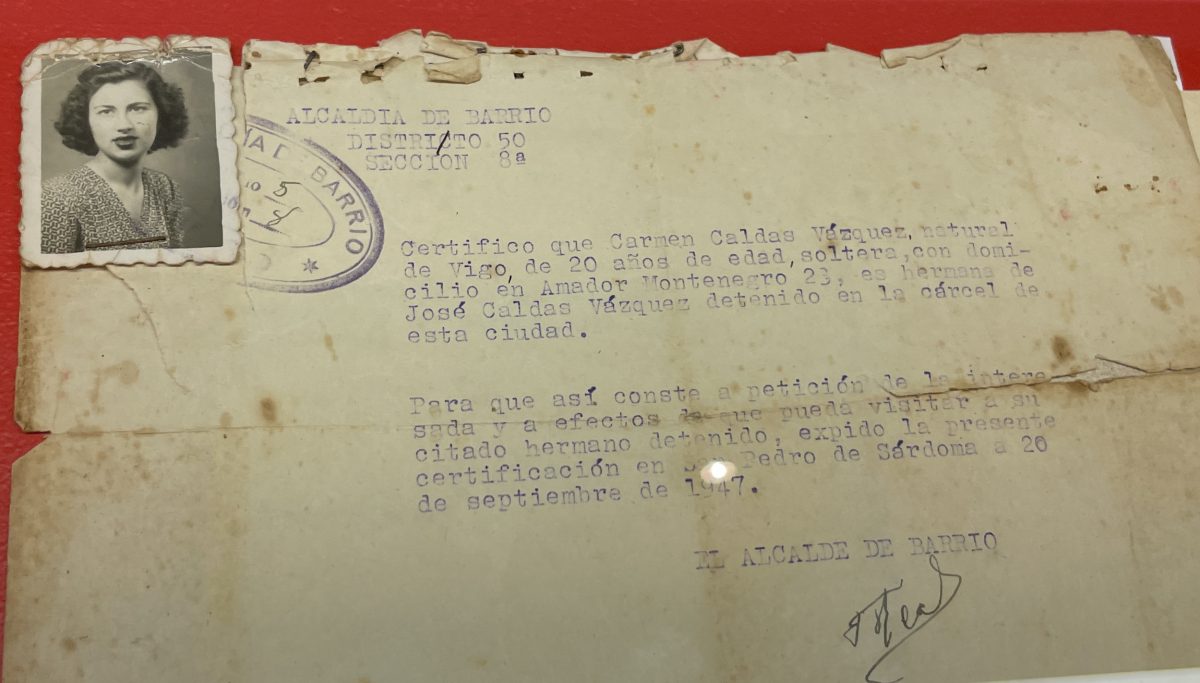
Mar Caldas: Mujeres, trabajo, y memoria continues at the Centro Galego de Arte Contemporánea (Rúa Valle Inclán 2, Santiago de Compostela, Spain) through May 25. The exhibition was curated by Monse Cea.
This post was originally published on this site be sure to check out more of their content

